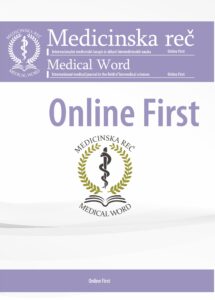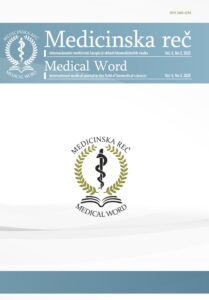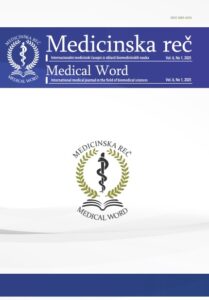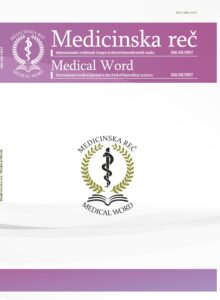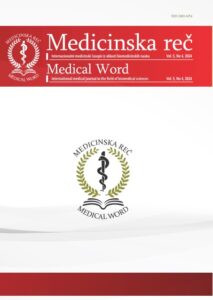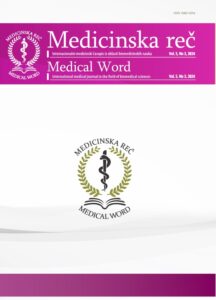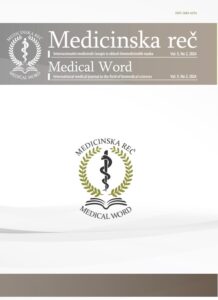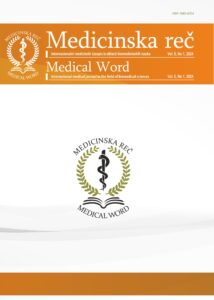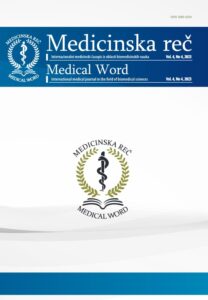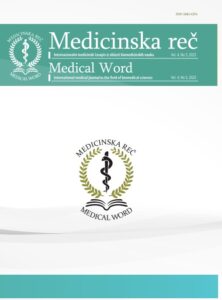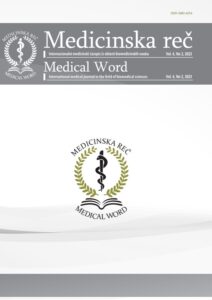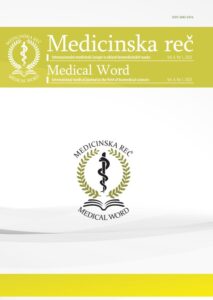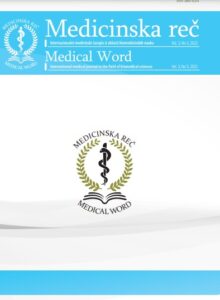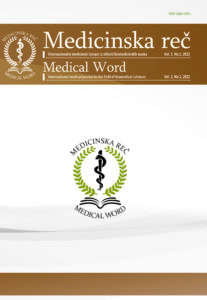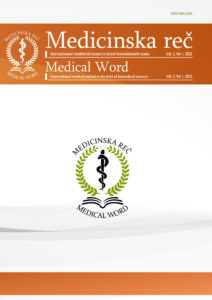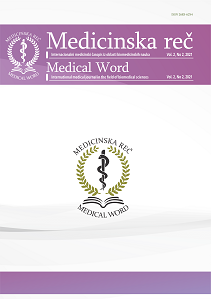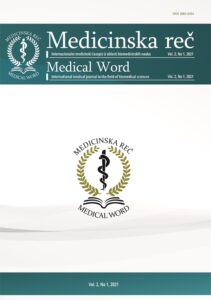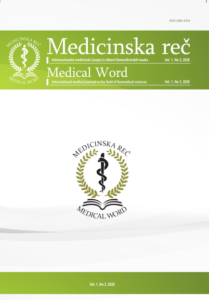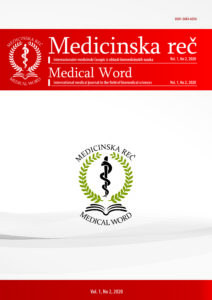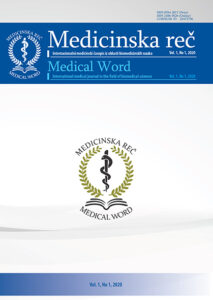Supportive transfusion therapy in patients with breast cancer
Original article
Ana Antić, Zvonko Zlatanović, Nebojša Vacić
76–79
https://doi.org/10.5937/medrec2203076A
Abstract
Anemia is the most common disorder in patients with breast cancer, and its frequency and severity depend on the stage and duration of the disease, applied therapeutic procedures, frequency of infections, as well as possible surgical intervention. Anemia in breast cancer increases the chance of disease progression 3 times, and reduces the relapse-free interval and the overall survival of the patient, while patients who have anemia during the application of adjuvant chemotherapy have a higher risk of local relapse and reduced survival. This paper retrospectively evaluated the use of red blood cell transfusions in patients with breast cancer who were treated at the Oncology Clinic of the University Clinical Center (UCC) Niš in 2022. During the observed period, 57 patients with breast cancer received a transfusion of 197 units of red blood cells, which is 3,45 transfused units per patient (range: 1-5 units). All transfused patients were treated with chemotherapy, while 19 patients were irradiated. According to hemoglobin (Hb) concentration, 80,4% of patients were transfused at Hb< 80g/l, and even 22,5% had severe anemia (Hb<50g/l). No transfusion reactions were reported. For the purpose of more effective transfusion treatment of patients with breast cancer, it is necessary to monitor the latest knowledge and attitudes about the clinical application of blood components, as well as the interdisciplinary cooperation of clinical doctors and transfusiologist.
Key words: breast cancer, anemia, transfusion
Literatura
- American Cancer Society. Key statistics for Breast cancer. Available on: https://www.cancer.org/cancer/breast-cancer/about/how-common-is-breast-cancer.html, Accessed on January 5, 2023.
- Giaquinto AN, Sung H, Miller KD, Kramer JL, Newman LA, Minihan A, et al. Breast Cancer Statistics, 2022. CA A Cancer J Clin, 72: 524-41.
- Pekmezović T. Epidemiologija raka dojke. Republička stručna komisija za izradu i implementaciju vodiča dobre kliničke prakse Ministarstvo zdravlja Republike Srbije. Nacionalni vodič dobre kliničke prakse za dijagnostikovanje i lečenje raka dojke, 2012.
- Muthanna FMS, Karuppannan M, Abdulrahman E, Uitrakul S, Rasool BAH, Mohammed AH. Prevalence and Associated Factors of Anemia among Breast Cancer Patients Undergoing Chemotherapy: A Prospective Study. Adv Pharmacol Pharm Sci 2022 ;2022:7611733.
- Muthanna FMS, Hassan BAR, Karuppannan M, Mohammed AH. Evaluation of the impact of anaemia on quality of life among breast cancer patients undergoing chemotherapy in Malaysia. Journal of Pharmaceutical Health Services Research 2021;12(2):310–12.
- Neoh K, Stanworth S, Pasricha S-R, Bennett MI. Estimating prevalence of functional iron deficiency anaemia in advanced cancer. Supportive Care in Cancer 2017;25(4):1209–14.
- Wouters HJCM., van der Klauw MM, de Witte T, et al. Association of anemia with health-related quality of life and survival: a large population-based cohort study. Haematologica 2019;104(3):468–76.
- Lyman G. H. Chemotherapy dose intensity and quality cancer care. Oncology (Williston Park, NY), 2006;20(14 Suppl 9):16–25.
- Leonard RC, Untch M, Von Koch F. Management of anaemia in patients with breast cancer: role of epoetin. Annals of Oncology, 2005; 16 (5): 817-24.
- Pourali L, Taghizadeh A, Akhoundi M R, Varshoei F, Zarifian A, et al. Frequency of Chemotherapy Induced Anemia in Breast Cancer Patients. Int J Cancer Manag 2017;10(1):e4672.
- Zhang Y, Chen Y, Chen D,et al. Impact of preoperative anemia on relapse and survival in breast cancer patients. BMC Cancer 2014; 14: 844.
- Ludwig H, Van Belle S, Barrett-Lee P, Birgegård G, Bokemeyer C, Gascón P, et al. The European Cancer Anaemia Survey (ECAS): a large, multinational, prospective survey defining the prevalence, incidence, and treatment of anaemia in cancer patients. Eur J Cancer 2004;40(15):2293-306.
- Barrett-Lee P, Bokemeyer C, Gascón P, Nortier JW, Schneider M, Schrijvers D, Van Belle S; ECAS Advisory Board and Participating Centers. Management of cancer-related anemia in patients with breast or gynecologic cancer: new insights based on results from the European Cancer Anemia Survey. Oncologist 2005;10(9):743-57.
- Antić A, Stanojković Z. Primena eritrocita kod onkoloških bolesnika lečenih radio i hemioterapijom. Vojnosanit Pregl 2011; 68(1): 28-34.
- Antić A, Filipović S, Pejčić I, Vrbić S. Primena produkata od krvi kod onkoloških bolesnika lečenih radio i hemioterapijom. AMM 2008; 47(4): 13-8.


